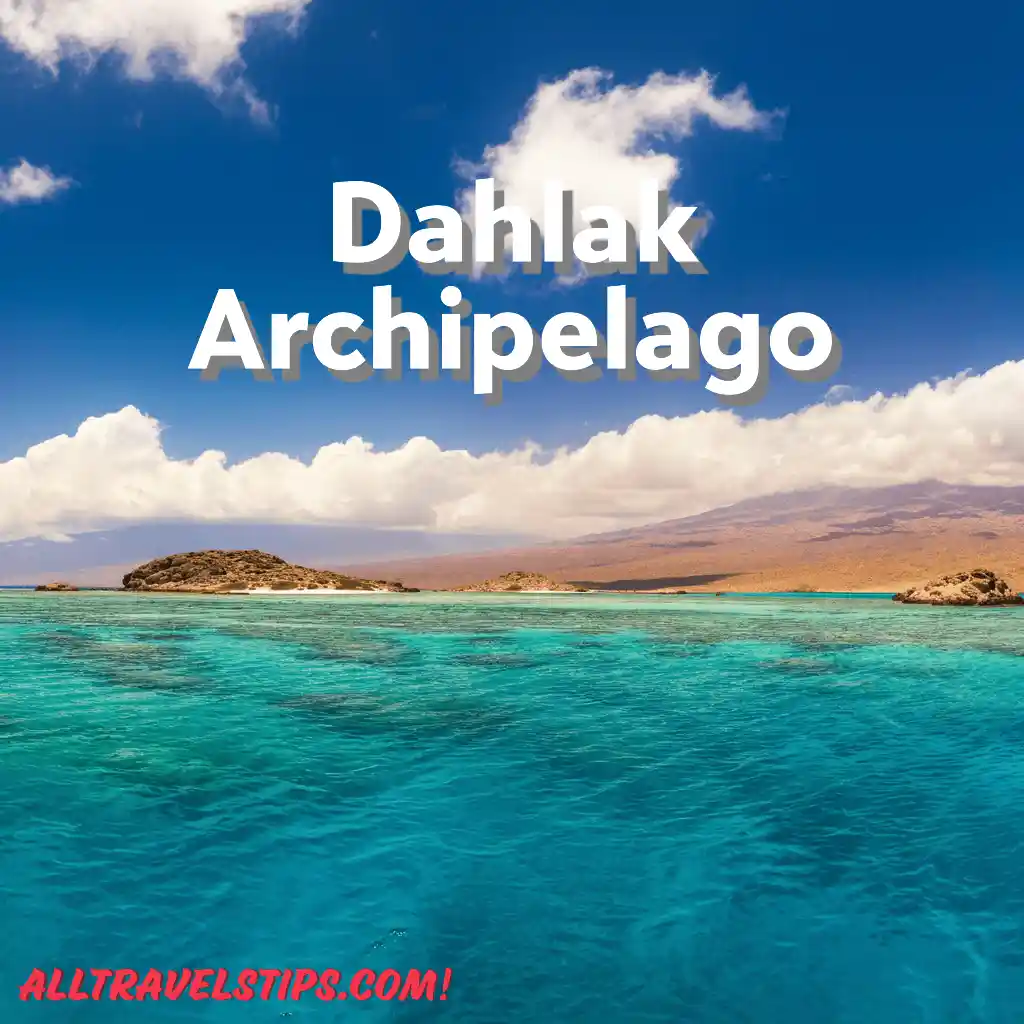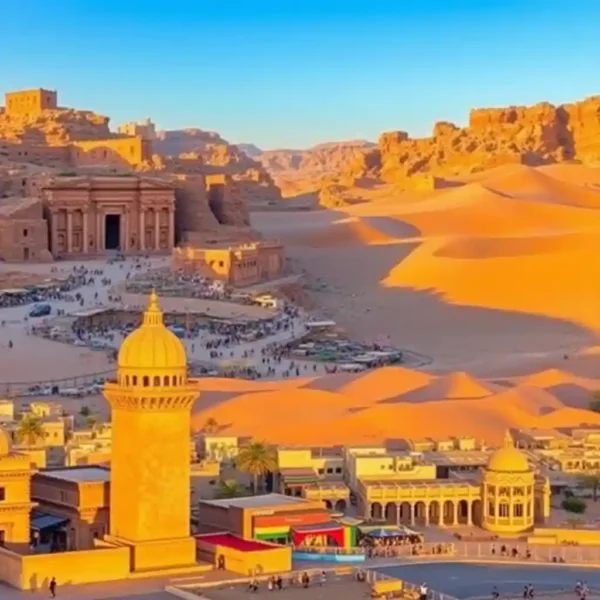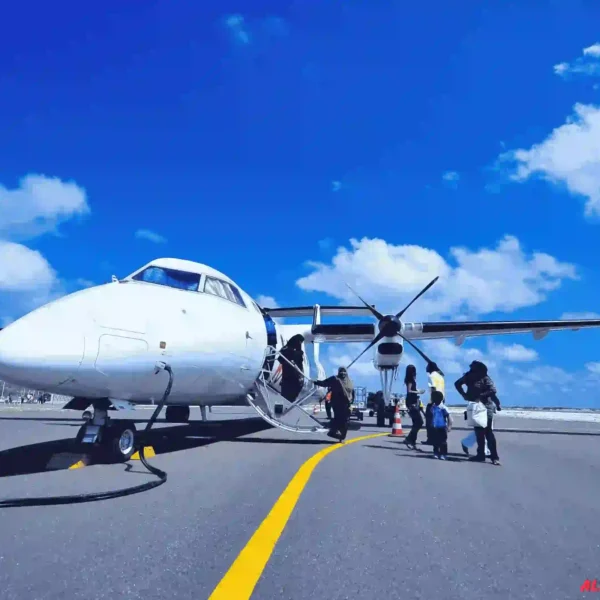A hidden gem in the Horn of Africa, offers a unique blend of ancient history, stunning landscapes, and vibrant culture to plan a trip to Eritrea. For those seeking an off-the-beaten-path destination, this country is an unparalleled choice. Whether you’re an avid adventurer or a history enthusiast, Eritrea has something to captivate your imagination. This guide answers how to travel in Eritrea and covers everything you need to know for an unforgettable Travel to Eritrea in 2025 and make your trip enjoyable. You will go through visas, permits, top attractions to cultural insights, and practical tips for a seamless travel experience.
Why Travel to Eritrea in 2025?
Eritrea is a land of contrasts, from its Red Sea to the highlands and vast deserts. With its UNESCO-listed sites, charming Italian colonial architecture, and friendly locals, Eritrea has something for every traveler. It remains one of Africa’s least-explored destinations, offering a unique blend of historical, cultural, and natural attractions. Here’s why Eritrea should be on your travel list:
- Untouched Beauty: Eritrea boasts pristine beaches, rugged mountains, highland vistas, and the Dahlak Archipelago’s stunning coral reefs.
- Rich History: From ancient ruins to colonial-era architecture, Eritrea is a living museum of human history.
- Rich Culture: A diverse blend of nine ethnic groups including Christian and Islamic traditions and harmonious religious coexistence.
- Warm Hospitality: Eritreans are known for their friendliness and welcoming attitude toward visitors.
By traveling to Eritrea in 2025, you’ll experience a destination that’s off the beaten path and filled with unforgettable experiences. Whether you seek history, adventure, or relaxation, Eritrea delivers on all fronts.
Visa Requirements
Who Needs a Visa?
Traveling to Eritrea requires a visa, most travelers, except citizens from a few neighboring countries, require a visa to enter Eritrea. Ensure you check the latest visa requirements for your nationality. The process can be straightforward if you prepare ahead of time. Where to Apply? At Eritrean embassies and consulates in your home country.
How to Apply for an Eritrean Visa
- Visit the Eritrean Embassy: Apply at the nearest Eritrean embassy or consulate and submit your application.
- Required Documents:
- A valid passport (minimum six months validity) and an invitation letter if needed.
- Two recent passport-sized photographs.
- A completed visa application form.
- Proof of accommodation or invitation letter (if required).
- Processing Time: Typically takes 7-10 business days but can take 2-4 weeks, so plan ahead.
- Visa Fees: Varies by nationality and visa type (tourist, business, or transit); generally ranges from $50 to $70.
- Important Note: Eritrea does not currently offer visa-on-arrival services for most travelers. Ensure you secure your visa before traveling.
Permits for Traveling Beyond Asmara
Traveling within Eritrea often requires permits for regions beyond the capital, Asmara, particularly near borders, may require additional permissions or remain off-limits. In addition to a visa, permits are necessary for traveling outside exploring regions. These permits help regulate access to certain regions for security reasons and issued by the Ministry of Tourism.
Key Permits to Consider
- How to Apply: Submit your itinerary including travel plans and passport details to the Ministry office in Asmara.
- Processing Time: Usually 1-3 days for approval.
- Massawa and Dahlak Islands: Required for exploring coastal areas.
- Keren and the Highlands: Obtainable from local authorities in Asmara.
- Military Areas: Restricted zones often require special clearance.
Tips: Plan ahead as some permits may take longer, especially for remote or sensitive areas. Ensure you apply for these permits in advance through your tour operator or local travel agencies.
Best Places to Visit in Eritrea
Eritrea is one of the most unique and underrated destinations in Africa with full of attractions. You can explore the Top Attractions in Eritrea to make your travel memorable.
Asmara: The Modernist City
Dubbed the “Africa’s Little Rome,” Asmara’s blend of Art Deco architecture and vibrant street life is a must-see. The capital city, a UNESCO World Heritage site, is celebrated for its well-preserved Italian colonial architecture. Don’t miss:
- The Fiat Tagliero Building: An iconic example of futuristic architecture.
- Asmara Cathedral: A stunning Italian-era church example of Romanesque Revival architecture.
- Cinema Impero: A classic Art Deco structure still in operation.
- Local Cafés: Experience the strong coffee culture at iconic spots like Bar Tre Stelle.
Massawa: Gateway to the Red Sea
Massawa is a historic port city with Ottoman-era architecture, vibrant and bustling seafood markets, and access to nearby beaches and islands. Known for its Ottoman and Italian influences, this port city is perfect for history enthusiasts. Attractions include:
- The Old Town: Explore narrow alleys and centuries-old buildings.
- Gurgusum Beach: A serene escape by the sea.
- Dahlak Archipelago: A short boat ride away, offering unparalleled snorkeling and diving opportunities. The Dahlak Archipelago consists of over 200 islands, many of which are uninhabited. Highlights include:

- Vibrant coral reefs teeming with marine life.
- Opportunities for kayaking, diving, and island hopping.
- Unspoiled beaches for relaxation.
- Unique wildlife, including seabirds and dolphins.
- Sheikh Hanafi Mosque: A historic landmark.

Keren: A Blend of History and Charm
A charming town famous for its lively markets and camel trading, Keren offers an authentic local experience. This highland town offers a glimpse into Eritrea’s rural charm. Must-visit spots include:
- Debre Sina Monastery: A spiritual retreat religious site in the highlands. Located near Nefasit, this ancient monastery offers breathtaking views and spiritual significance.
- The British War Cemetery: A reminder of World War II’s impact on Eritrea.
Ancient Sites: Qohaito and Adulis
Explore ancient ruins and historical significance of Eritrea’s sea and other wonderful areas including:
- Qohaito: A pre-Aksumite archaeological site featuring ancient ruins and rock art with breathtaking views.
- Adulis: Explore the remains of an ancient Red Sea trading port.
Why You Need Travel Insurance
Travel insurance is essential for any trip to Eritrea. It covers unforeseen events such as medical emergencies, trip cancellations, or lost of personal belongings.
Recommended Providers
- World Nomads
- Allianz Travel
Ensure your policy includes coverage for adventure activities like diving or trekking.
When is the Best Time to Visit Eritrea?
Eritrea’s climate varies depending on the region, making some times of the year better for travel than others. However, some seasons are better for specific activities:
- October to February: Ideal for exploring the highlands, including Asmara, with pleasant, cooler weather.
- February to March: The dry season, ideal for exploring coastal areas (Massawa, Dahlak Archipelago) to enjoy diving and beach activities.
- March to June: Perfect for beach lovers heading to Massawa and the Dahlak Archipelago.
- June to September: Cooler temperatures in the highlands, but rainy in some regions especially in the highlands, but it’s still possible to travel.
Festivals and Events
- Independence Day (May 24): Visit and Celebrate Eritrea’s independence with parades, music, and cultural performances.
- Meskel (September): A traditional Christian festival marked by bonfires and community gatherings.
For most travelers, the period between October and February is the best time to visit.
How to Reach Eritrea
By Air
- Asmara International Airport (ASM): The main entry point and international gateway is ASM with connections to Dubai, Istanbul, and Cairo.
- Airlines like:
- Eritrean Airlines: Connects to key regional hubs flights within Africa.
- FlyDubai: Direct flights from the Middle East.
- Ethiopian Airlines: Connect Eritrea to major global hubs and international routes.
By Land
- Overland travel is limited and often not recommended due to political tensions. Check the status of border crossings well in advance before planning.
- Sudan Border: Crossing from Sudan is possible but requires careful planning.
- Djibouti and Ethiopia: Borders are currently closed; check for updates before traveling.
Why Consider Guided Tours?
Given Eritrea’s travel restrictions, guided tours simplify logistics and ensure you get permits for restricted areas. While independent travel is possible, guided tours can enhance your experience, especially for hard-to-access areas.
Popular options include:
- Historical Tours:
- Explore ancient ruins, colonial architecture, Qohaito, Keren and WWII battle sites.
- Cultural Tours:
- Visit traditional villages and experience Eritrea’s diverse heritage. Explore Asmara’s heritage and local traditions.
- Diving Excursions:
- Discover the underwater world of the Red Sea in the Dahlak Archipelago.
Recommended Tour Operators
- Explore Eritrea
- Red Sea Adventures
Books to Read Before You Go
Enhance your understanding of Eritrea by reading:
- “I Didn’t Do It for You” by Michela Wrong: “How the World Betrayed a Small African Nation” Chronicles Eritrea’s modern history.
- “Eritrea: A Country Handbook” by Edward Denison: A comprehensive cultural guide.
- “Eritrea: A Journey Through Its Culture and History” by Edward Denison.
- “Asmara: Africa’s Secret Modernist City” by Edward Denison and Guang Yu Ren.
Eritrean People & Culture
Eritreans are known for their hospitality and resilience. The country’s nine ethnic groups including the Tigrinya, Tigre, and Afar communities, each bring unique traditions, languages, and cuisines.
Cultural Highlights
- Tigrinya and Tigre Communities: Known for their warm hospitality.
- Religious Harmony: A mix of Christianity and Islam coexists peacefully, making Eritrea a model of religious tolerance.
- Festivals: Witness vibrant celebrations like Meskel and Eid.
- Tigrinya Music: Traditional music and dance a central part of Eritrean celebrations.
- Traditional Coffee Ceremonies: A social ritual not to be missed.
- Local markets with handcrafted goods.
- Traditional food, coffee ceremonies, and communal dining.
Safety: Is Eritrea Safe?
Eritrea is generally safe for tourists, but take standard precautions.
- Political Stability: Avoid political discussions in public.
- Local Laws: Be mindful of restricted areas and respect local customs and regulations.
- Keep Essentials: Carry copies of your permits at all times.
- Health Precautions: Stay updated on vaccinations and carry basic medical supplies.
Food: Try in Eritrea
Eritrean cuisine is a delightful mix of Mediterranean and African flavors influenced by Ethiopian, Italian, and Middle Eastern traditions. So, What to Eat in Eritrea? Must-try dishes include:
Must-Try Dishes
Staple Dishes
- Injera: A staple sourdough flatbread served with spicy stews like tsebhi.
- Zigni: A hearty beef stew.
- Shiro: A chickpea-based dish.
- Seafood: Fresh dishes are common in coastal areas like Massawa.
Beverages
- Coffee Ceremony: Experience the traditional brewing and serving process. A cultural ritual not to be missed.
- Suwa: A traditional fermented drink.
Don’t miss the street food and local drinks like swa (homemade beer).
Internet
Internet access in Eritrea is limited and often slow, so plan for offline resources.
Tips for Staying Connected
- Wi-Fi: Use Wi-Fi available in some hotels and cafes in Asmara and major cities.
- SIM Cards: Consider purchasing a Local SIM cards for basic connectivity that are available but require registration.
- Alternatives: Consider downloading offline maps and guides before arrival.
Money & Currency of Eritrean
The official currency is the Eritrean Nakfa (ERN).
Tips for Travelers
- Cash: Credit cards and online payments are rarely accepted; so carry enough cash, as ATMs are rare.
- Currency Exchange: Currency exchange is best done at banks or authorized dealers.
- Budgeting: Eritrea is affordable, but travel permits and tours can add to costs.
Accommodation in Eritrea
Eritrea offers a range of accommodations, from budget-friendly guesthouses to mid-range hotels.
Recommended Places
- Asmara Palace Hotel: A luxury option in the capital. Albergo Italia and Crystal Hotel offer comfortable stays
- Red Sea Hotel, Massawa: Ideal for coastal stays. Dahlak Hotel provides excellent views and proximity to the port.
- Homestays: Consider staying with local families for an authentic experience.
- Budget Friendly Options: Local guesthouses offer affordable lodging with basic amenities.
Transportation in Eritrea
Getting around Eritrea can be an adventure in itself.
Options
- Public Buses: The cheapest way to travel between cities. Public buses connect major cities but can be slow and crowded.
- Shared Taxis: Shared taxis are common and widely available in Asmara.
- Car Rentals: Possible but expensive; often requires a driver. In fact, come with a driver due to permit requirements.
- Historic Railway Trains: Enjoy the historic famous Eritrean Railway line offers scenic rides but operates irregularly.
More Information
Useful Resources
- Eritrea Travel Advisory Website: Eritrea’s Eritrean Ministry of Tourism website for official updates.
- Travel Forums: Platforms like Lonely Planet’s Thorntree provide traveler insights and real-time tips.
- Embassy Contacts: Stay updated with local consulate information for emergencies.
Related Articles for Travelers
- Top Places to Visit in East Africa
- A Guide to Budget Travel in Africa
- Exploring the Red Sea: Best Diving Spots
- A Beginner’s Guide to Traveling in East Africa
- Top Cultural Festivals in Africa You Shouldn’t Miss
- Discovering the Best Beaches in the Red Sea Region
- Travel Planning Tips: The Ultimate Guide
a journey to Eritrea in 2025 promises an unforgettable experience. With its rich history, breathtaking landscapes, and welcoming people, Eritrea is a destination that deserves a spot on your travel list. By planning ahead and understanding the unique aspects of Eritrean travel, you’ll be well-prepared for an unforgettable adventure in 2025. Moreover, you can explore all travels tips and hacks including guide of destinations and more at this platform.






